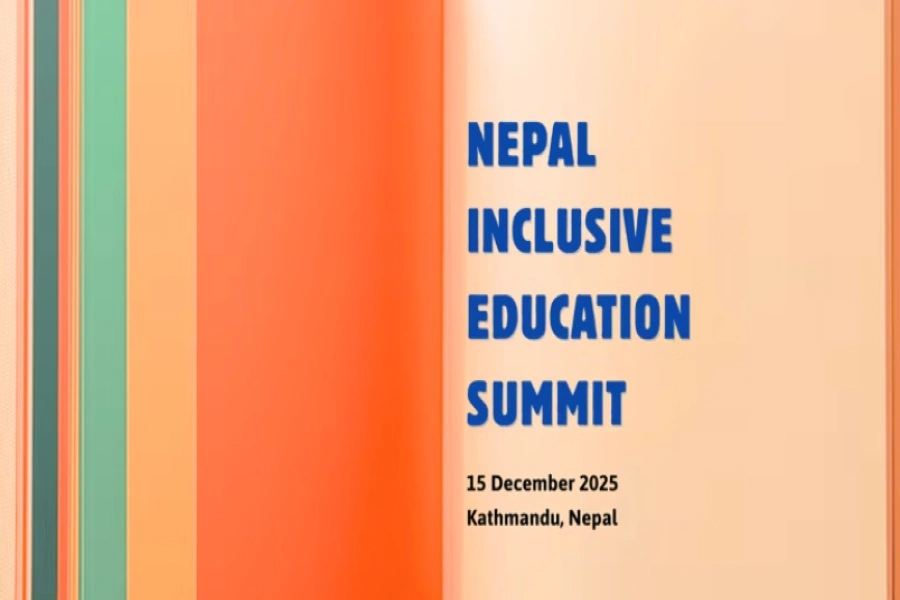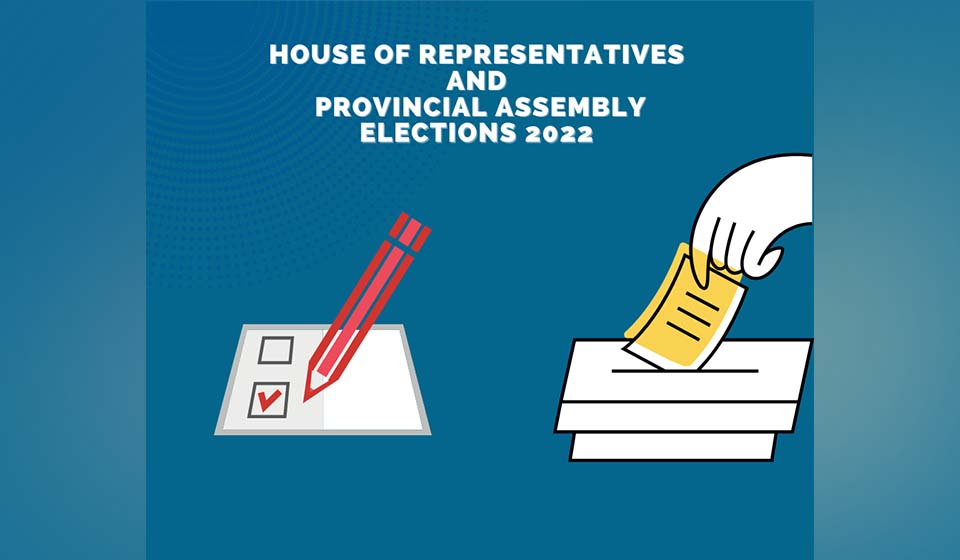The right to vote is a fundamental human right and essential for a well-functioning democracy. The principles of universal, equal, free, and secret ballot form an integral part of the fundamental right of persons with disabilities to vote. The Constitution of Nepal guarantees that persons with disabilities shall have the right to participate in state bodies on the basis of the principles of inclusion. However, in Nepal, persons with disabilities, especially persons with intellectual disabilities and psychosocial disabilities have been prevented from gaining access to polling places.
Nepal’s Constitution 2015 Article 18(2) states that there shall be no discrimination in the application of general laws on the grounds of origin, religion, race, caste, tribe, sex, physical conditions, disability, health condition, matrimonial status, pregnancy, economic condition, language or geographical region, or ideology or any other such grounds. Section 11 of the Rights of Persons with Disabilities Act 2017 states that persons with disability, on an equal basis as other persons, shall have the right to be a candidate in elections in a fearless environment, and have the right to cast vote voluntarily with or without someone’s support. However, in Nepal, due to lack of pure awareness, that is, lack of access to the broader ideological conversations of the world, significant challenges remain in implementing the Rights of Persons with Disabilities Act 2017.
These facts highlight that the Government of Nepal is unable to implement these legal policy provisions to enable persons with disabilities to realize their right to vote. This situation shows how Nepal is violating laws enshrined in its Constitution that aim to ensure the right to vote for disabled people.
The right to vote is a universally guaranteed right. This right is contained in numerous international and regional human rights conventions and treaties, and requires that states must develop national legislation and policies in line with international law. If a state can provide its people with fundamental human rights, such as the freedom of expression, equality before the law, and the right to work, the state must commit to providing the right to vote.
Mahat defends Nepal constitution in Brussels

On December 13, 2006, the UN General Assembly adopted the Convention on the Rights of Persons with Disabilities (CRPD) and an associated optional protocol. With the adoption and entry into force of the CRPD, the rights of people with disabilities, including political rights, have received much more prominence than in the past. Its adoption and entry into force provide evidence of a widespread consensus about the importance of international law in the efforts to improve the lives of people with disabilities. CRPD Article 29 states that voting procedures, facilities and materials must be appropriate, accessible and easy to understand for use by persons with disabilities. Further, the Convention requires governments to provide reasonable accommodation and the “individual support required within the general election system, to facilitate their voting rights . . . consistent with the goal of full inclusion.”
Nepal is a state party to several international human rights instruments. However, contrary to the obligations enshrined in the agreement, Nepal did not review its laws and policies before ratifying the CRPD and never fully granted the full attention. As a result, the ratification of the CRPD by Nepal’s government in 2010 has not brought any significant practical change in the daily life of persons with disabilities, especially women with disabilities in remote areas of Nepal.
Nepal’s election laws say that separate queues are available for voters with disability or illness, the elderly, pregnant women and new mothers. However, a report from Nepal’s Parliament and Provincial Election 2022 found that persons with disabilities continue to be marginalized from full participation in the electoral process. The electoral framework is silent on guaranteeing accessibility for persons with disability during the entire election process: from access to the voter registration centers up to the filing of nominations and complaints.
Inclusive elections can empower persons with disabilities to engage politically and become mainstream members of society with the rights, responsibilities and respect afforded to all citizens. When persons with disabilities are not participating politically, it prevents democracy from deepening and allowing all citizens a voice in the way they are governed.
Like all citizens, persons with disabilities want the opportunity to shape their communities and, in doing so, they can become recognized and valued community members. To achieve this status, persons with disabilities need to participate politically. Elections provide an opportunity for their power and influence to be exercised and strengthened. Elections are a tool for persons with disabilities to express their preferences. Elections also allow disabled people to develop leadership skills, build relationships, and demonstrate their abilities.
Persons with psychosocial and intellectual disabilities continue to be deprived of their right to vote and to be elected, due to constitutional or legal provisions that link their political rights to legal capacity. Political participation is acknowledged as a fundamental human right, but one that historically has not been realized due to social conventions about the perceived inabilities of various groups of individuals. Under international human rights instruments, persons with disabilities must be accorded the same access to political participation as all other persons, and so their capacity must equally be presumed. States also have an affirmative duty to accommodate and support persons with disabilities in the realization of the right to political participation. Persons with disabilities often experience discrimination and unequal treatment while exercising their voting rights. Persons with disabilities remain less likely than non-disabled people to vote.
Also, disabled people continue to be side-lined in other ways. The electoral system, political parties' attitudes toward people with disabilities, social and community participation of people with disabilities, and political culture act as factors that affect persons with disabilities' participation in politics. Persons with disabilities tend to vote in lower numbers than the general population.
Voting is one of our most important civic functions. Voting is the way that citizens change the political course. But voting is also a vehicle for a person to express his belonging in the larger community, and to show that whatever his ethnicity or socioeconomic status, that he is fundamentally equal to other citizens. However, in Nepal, research shows Nepal’s Election Commission lacks addressing disabled persons’ voices.
To sum up, the right to vote is regarded as one of the fundamental cornerstones of modern democracy. However, in Nepal, for persons with disabilities, especially for persons with intellectual disabilities and psychosocial disabilities, the right to vote remains out of reach. Non-disabled people think persons with psychosocial and intellectual disabilities do not have the decision-making capacity that is required for voting.
As a state party to several international human rights instruments, including the United Nations Convention on the Rights of Persons with Disabilities (CRPD), Nepal must first design and deliver workshops for disability rights activists to increase familiarity of national and international frameworks that protect the rights of persons with disabilities. Second, Nepal must provide Braille and/or audio guides for persons with visual disabilities. Third, Nepal must commit to having ground-floor voting to make polling booths accessible for wheelchair riders. Fourth, Nepal must place polling stations in settings where elderly or disabled persons gather, and implement in-home voting for individuals with severe mobility impairments.







































